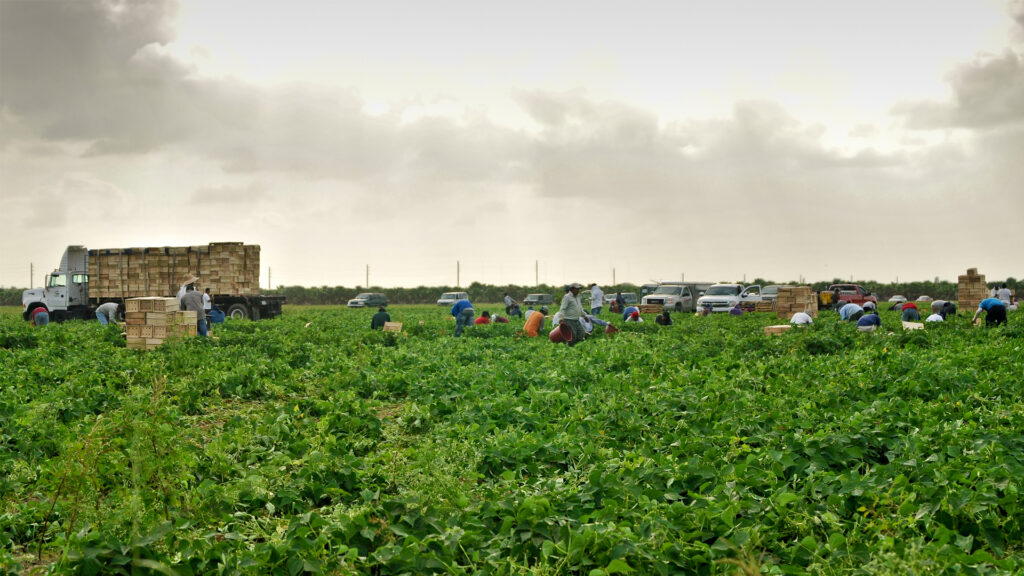By Susan L. Marquis
Eugene Gates collapsed and died delivering our mail in 115-degree heat in late June. Felipe Pascual met the same fate in July while improving our roads in Texas. Efraín López Garcia died while harvesting tropical fruit in Florida.

Centers for Disease Control and Prevention data indicate a tripling of heat-related work deaths in some Southwestern states, and annual work-related injuries because of heat may be undercounted by 20,000 people a year. While record-breaking temperatures sear much of the United States, the people who feed, transport and house us — and who have no choice but to work outside — increasingly are paying the ultimate price.
But while guidelines are readily available, legal protection for workers in extreme heat is difficult to negotiate, harder to pass and — as we’ve seen in the increasing number of forced-labor and worker-abuse cases in agriculture — rarely enforced.
In states without regulations — which is most states — a handful of cities have put in place effective standards, such as mandatory breaks for rest and hydration. But some are now seeing their ability to do so overturned through initiatives such as Gov. Greg Abbott’s Texas Regulatory Consistency Act, preempting city and local laws.
Heat-illness prevention requirements have been absent at the federal level, with the Occupational Safety and Health Administration only now considering potential regulation. If approved, implementation is years away.
Legal protection, and ensuing enforcement, is needed. But extreme heat will not let up while we wait for deals to be made, regulation to be reviewed and enforcement mechanisms to be put in place. Workers’ lives are at stake.
An off-the-shelf solution is hiding in plain sight on farms in the supply chains of major corporations participating in the Fair Food Program, a worker-driven, legally binding partnership between farmworkers, growers and large corporate buyers.
Farmworkers in the Fair Food Program have developed heat-illness standards and protocols that already are in place on farms from Florida to New Jersey, reaching west through Tennessee and Colorado, and into California. These farms are the suppliers for international grocery chains, most major fast-food chains and food-service companies. By purchasing produce only from suppliers in compliance with Fair Food Program standards, Walmart, McDonald’s, Whole Foods, Yum! Brands and other national and global chains put their corporate buying power behind enforcement of the program’s code of conduct to ensure the human rights and safety of the workers in their supply chains and to thereby protect their brands.

The Fair Food Program has been recognized by the U.S. Department of Labor, Department of Justice, and Customs and Border Protection, as well as internationally by the United Nations as the only effective program in preventing the abuses common in corporate supply chains. Through mandatory standards, worker education, 24/7 monitoring and immediate market consequences for violations, the program is credited with eliminating unsafe working conditions, wage theft, beatings, rape and forced labor for tens of thousands of farmworkers each year on participating U.S. farms.
In August 2021, after an extended streak of “the hottest on year on record” reports, the Fair Food Program established new heat safety standards, building on the program’s existing requirements for the provision of shade, water and elective work breaks in the fields. The new standards include heat-stress monitoring, identification and treatment plans; cool-down rest breaks every two hours; and trilingual (Spanish, English and Haitian Creole) training for supervisors, crew leaders and workers on the signs and symptoms of heat illness and the appropriate response to such developments.
As consumers — who buy the food, live in the housing and travel the roads harvested and built by the workers most affected by heat extremes — we have the power of the purse. Corporations — grocery store and restaurant chains, major developers of homes and office buildings — control the producers in their supply chains and the workers within.
Consumers, journalists and lawmakers need to hold these corporations accountable for the workers who support their businesses. The Fair Food Program’s heat illness prevention standards already are proven. Crews are staying hydrated and safe. As one farmworker reported, “We can do more than improve day-to-day health and safety conditions. We can prevent a father or mother, a daughter or son, from losing their lives.”
Susan L. Marquis is a visiting professor and lecturer at Princeton University’s School of Public and International Affairs. She is the author of “I Am Not A Tractor: How Florida Farmworkers Took on the Fast-Food Giants and Won!” This opinion piece was originally published by the Miami Herald, which is a media partner of The Invading Sea.
If you are interested in submitting an opinion piece to The Invading Sea, email Editor Nathan Crabbe at nc*****@*au.edu. Sign up for The Invading Sea newsletter by visiting here.



